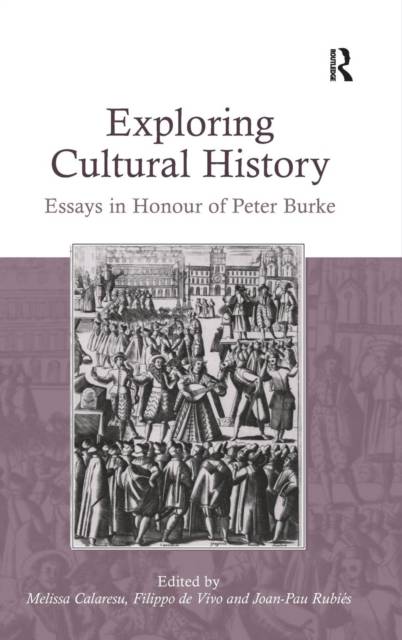
- Retrait gratuit dans votre magasin Club
- 7.000.000 titres dans notre catalogue
- Payer en toute sécurité
- Toujours un magasin près de chez vous
- Retrait gratuit dans votre magasin Club
- 7.000.000 titres dans notre catalogue
- Payer en toute sécurité
- Toujours un magasin près de chez vous
Exploring Cultural History
Essays in Honour of Peter Burke
Melissa Calaresu, Joan-Pau Rubies, Filippo De Vivo
Livre relié | Anglais
195,95 €
+ 391 points
Format
Description
Over the past 30 years, cultural history has moved from the periphery to the centre of historical studies, profoundly influencing the way we look at and analyze all aspects of the past. In this volume, a distinguished group of international historians has come together to consider the rise of cultural history in general, and to highlight the particular role played in this rise by Peter Burke, the first professor of Cultural History at the University of Cambridge and one of the most prolific and influential authors in the field. Reflecting the many and varied interests of Peter Burke, the essays in this volume cover a broad range of topics, geographies and chronologies. Grouped into four sections, 'Historical Anthropology', 'Politics and Communication', 'Images' and 'Cultural Encounters', the collection explores the boundaries and possibilities of cultural history; each essay presenting an opportunity to engage with the wider issues of the methods and problems of cultural history, and with Peter Burke's contributions to each chosen theme. Taken as a whole the collection shows how cultural history has enriched the ways in which we understand the traditional fields of political, economic, literary and military history, and permeates much of what we now understand as social history. It also demonstrates how cultural history is now at the heart of the coming together of traditional disciplines, providing a meeting ground for a variety of interests and methodologies. Offering a wide international perspective, this volume complements another Ashgate publication, Popular Culture in Early Modern England, which focuses on Peter Burke's influence on the study of popular culture in English history.
Spécifications
Parties prenantes
- Auteur(s) :
- Editeur:
Contenu
- Nombre de pages :
- 394
- Langue:
- Anglais
Caractéristiques
- EAN:
- 9780754667506
- Date de parution :
- 19-10-10
- Format:
- Livre relié
- Format numérique:
- Genaaid
- Dimensions :
- 156 mm x 234 mm
- Poids :
- 730 g







